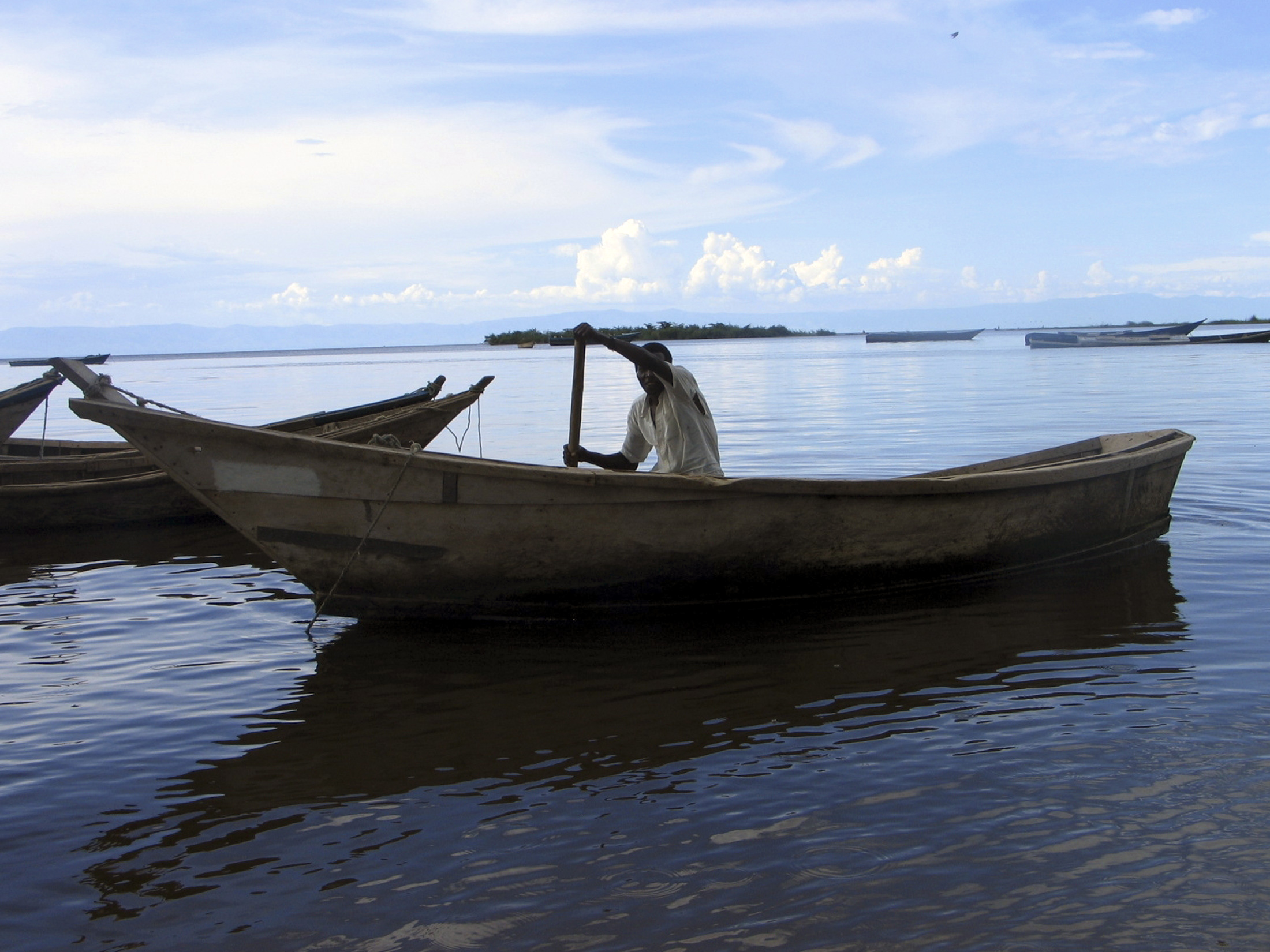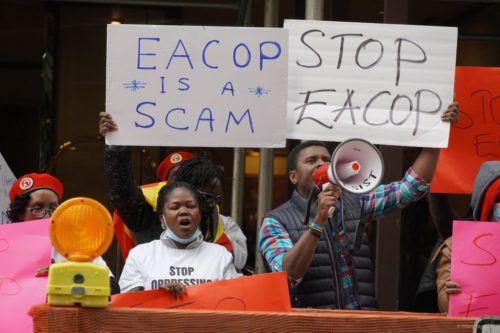Chinese companies have broke ground on a new oil field in East Africa
A joint venture between two Chinese state-owned companies recently began development of a new oil field in Uganda, as Beijing seeks to diversify its oil imports through a massive pipeline that goes from the Congo border to the Indian Ocean.

Two Chinese state-owned companies, Offshore Oil Engineering Co. and China Petroleum Engineering & Construction Corp., have started building onshore facilities for an oil field in western Uganda, the Kingfisher oil field central processing facility (Kingfisher CPF) that will be owned by China National Offshore Oil Corporation (CNOOC).
The Kingfisher CPF will feed into the controversial East African Crude Oil Pipeline (EACOP) that will run from Uganda’s Lake Albert oil fields, just near the border with the Democratic Republic of Congo (DRC), to the port of Tanga on the Indian Ocean in Tanzania, nearly 1,000 miles away.
- EACOP has been criticized for a variety of reasons, including concerns about environmental damage and lack of benefits to locals.
The Kingfisher CPF project broke ground last week, and is expected to be able to process about 40,000 barrels of oil per day when completed by the end of 2024.
- The associated pipeline, EACOP, is designed to have a peak capacity of 246,000 barrels of oil per day (bopd), and is expected to last 20 years.
- Another upstream development project that will feed into EACOP, Tilenga, is owned by French oil giant TotalEnergies, and will produce some 200,000 bopd. Tilenga is where recoverable oil was first discovered in the region in 2006.

On February 1, 2022, EACOP’s shareholders announced a $10 billion Final Investment Decision (FID). The shareholders are the French energy giant TotalEnergies, which holds a 62% majority stake; Uganda National Oil Company (UNOC) and Tanzania Petroleum Development Corporation (TPDC), each with a 15% stake; and Chinese state-owned oil giant China National Offshore Oil Corporation (CNOOC), with the remaining 8%.
- The project is currently in its execution phase, including the land acquisition and construction, before being slated to enter operation and deliver its first round of oil by or after 2025.
But environmental concerns and funding problems have plagued the development projects since the get-go, largely driven by climate and human rights concerns.
- The European Parliament passed a resolution in September on “violations of human rights in Uganda and Tanzania linked to investments in fossil fuels projects,” calling for the suspension of the pipeline project over climate concerns.
- A slew of global banks — including JPMorgan Chase, Citigroup, Wells Fargo, Morgan Stanley, and Deutsche Bank — have indicated that they will not fund EACOP due to “climate risks.” Chinese banks are being looked at as the last-resort financiers for the controversial project.
- A campaign called #StopEACOP, represented by 61 civil society organizations from Uganda, Tanzania, the Democratic Republic of Congo, and Kenya, wrote a letter (in English, Chinese) in October 2021 to the Industrial and Commercial Bank of China (ICBC) to express their concerns about its role as a financial adviser to the project.

China is the world’s biggest crude oil importer, getting most of its liquid gold from Saudi Arabia and Russia. But the East African oil projects come as part of a two-decade effort by Beijing to diversify not just its oil import suppliers, but also its oil import routes, in a bid to secure supplies to meet growing demand.
But the EACOP is not just a Chinese project: “While Chinese companies are involved, and some of the refining will reportedly happen in China, one should also take into account the significant French component via TotalEnergies, that some refining will also happen in Europe, as well as the African governments’ close involvement,” Cobus van Staden, managing editor at the China-Global South Project, told The China Project. “In that sense, the impact on China’s energy resources needs to be seen in the wider context of African governments responding to global upticks in hydrocarbon prices, which were partly triggered by the war in Ukraine.”
“China plays a significant role here, but to which extent they’re driving the project remains unclear to me. More broadly, the disjuncture between China’s climate goals and the actions of Chinese oil companies are also replicated in Europe, North America, and Australia,” he added.
China news, weekly.
Sign up for The China Project’s weekly newsletter, our free roundup of the most important China stories.
Meanwhile, China’s new foreign minister, Qín Gāng 秦刚, is in Africa for a five-nation, weeklong trip to kick off his new term, the Chinese Foreign Ministry announced yesterday, marking the 33rd consecutive year that Africa has been the destination of Chinese foreign ministers’ annual first overseas visit.
- Qin Gang will be visiting Ethiopia, Gabon, Angola, Benin, and Egypt in a bid to “deepen” ties and “boost friendly cooperation.”
- “This shows how much China values its traditional friendship with Africa and the growth of China-Africa relations,” Chinese Foreign Ministry spokesperson Wāng Wénbīn 汪文斌 said today.
“Qin Gang’s visit is partly aimed at signaling that China is responsive to the ambitions of African governments. Some of those ambitions include exporting oil and gas and Chinese companies are among the transnational companies bidding for some of those projects,” van Staden told The China Project. “But this isn’t fundamentally different from the French, Canadian, and other companies doing the same thing. African demand is a key factor, but so is the pressure African countries face to trade, especially at a moment when most rich countries setting climate goals are also importing vast amounts of hydrocarbons.
See also:
- Xí Jìnpíng 习近平 held talks with Turkmenistan President Serdar Berdimuhamedov in Beijing on Friday (full joint statement in Chinese), where he called for the “need to expand energy cooperation on a priority basis.”
- Last week, Afghanistan’s Taliban-led administration signed a contract with a Chinese company to extract oil from the Amu Darya basin in the northern part of the country.






